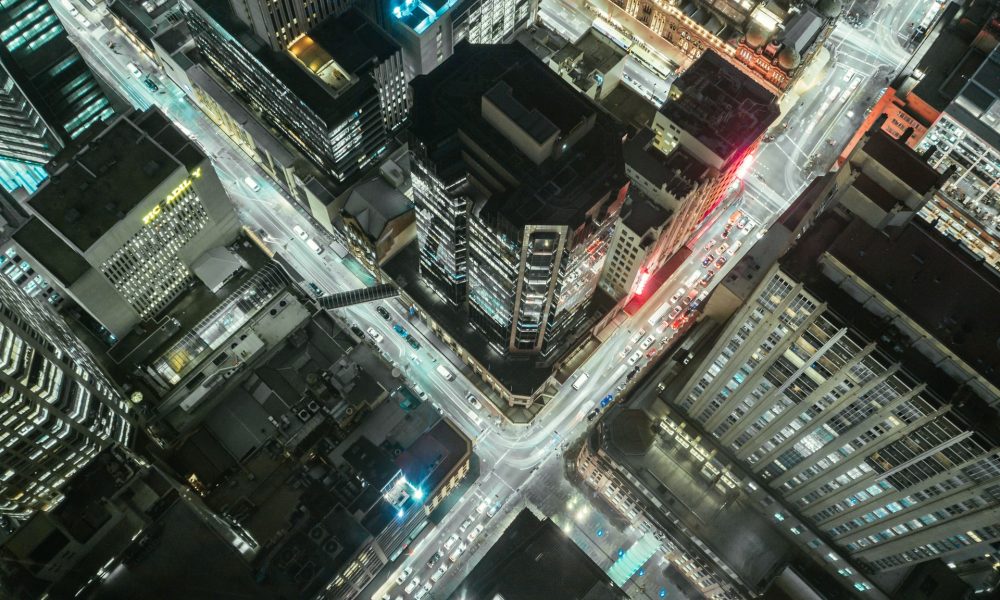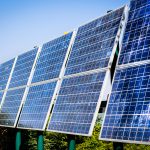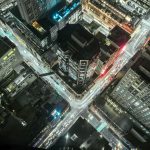Introduction: Solar Highway Noise Barriers
When it comes to the health risks of living in the big city, a lot has been said about air pollution. This certainly isn’t meant to diminish its impact on people – air pollution has several proven effects on the health and wellbeing of city dwellers. Breathing in too much exhaust or other dangerous particulates definitely isn’t good for anyone. Because of this, cities have made serious efforts to cut down on emissions, plant trees and other urban greenery, and more.
However, a less discussed form of pollution is noise pollution. While plenty of people complain about the noise that is generated inside of a large city, fewer know the genuine and detrimental ways that noise affects a person’s health. Think of the noise you get in a city. Even at night, when the sun has gone down and activity has likewise slowed, there’s still a steady level of noise in the background. Sirens, the rumbling of late-night trains, the remaining traffic on the streets, even the low-level humming of central air, all contribute to that noise pollution. Things, of course, get even worse during the day, when activity has ramped up and the sounds of traffic, airplanes overhead, industrial activity, and more gets even worse.
In this blog, we’ll look at the impacts of noise pollution as well as how some solutions can be married perfectly with solar technology.
The Impacts of Noise Pollution

In most city, the noise levels tend to sustain at around 60 decibels, with the possibility of spiking up to 85 decibels or more, depending on where you are. These levels aren’t just annoying, they can be genuinely harmful to your health. Naturally, being exposed to all of the noises of the city can lead to hearing loss, but that’s not even the worst of it. These sustained decibel levels can even lead to higher blood pressure and heart rate, stress, loss of concentration, and loss of sleep at nighttime.
A lot has been said about chronic stress, and the noises of the city can contribute to these stress levels. Chronic stress is associated with several cardiovascular risk factors, and can, down the line, even lead to things like hypertension, myocardial infarction, and stroke. These health issues aren’t anything to turn a blind eye to.
Why Are Cities So Noisy?

As mentioned above, there are several reasons that the noise levels in cities are so high. One factor that can’t be ignored is the presence of cars. Road noise in cities is pervasive and, depending on the speed of traffic, can result in fairly high decibel levels. Another issue is that, throughout the day, traffic can be fairly constant, leaving people with no respite from endless road noise. Not ideal, given the health impacts of high decibel levels.
What Can Be Done?

On faster highways, one way to cut down on road noise is to put up noise barriers. The concept here is simple – physical barriers by noisy roads will literally block the sound from travelling too far. This simple idea can save nearby residents from the deleterious health effects of noise pollution. In fact, similar projects have been taking place on Australia’s own southern expressway in order to block out unwanted sound.
Photovoltaic Solar Noise Barriers (PVNB)
This is where solar technology can come into play. These noise barriers create a lot of otherwise unused flat surfaces, and there are few places that solar panel systems like more than a flat surface. There are many different ways to design a noise barrier and thereby several different ways to affix solar panels to their surface, but the concept itself is simple. If there’s some free real estate somewhere, you might as well throw some solar panels on it.
This idea really is a no-brainer. As you protect people from noise pollution with noise barriers, you can also generate clean electricity with solar panels. And, given how much pollution is normally caused by all the cars on these noisy roadways, it’s nice to offset at least some of that with solar energy. The ideal solution to cutting down on noise pollution from traffic is, of course, to simply have fewer cars, but until we can make that happen on a large scale, solar panels on noise barriers is a pretty good way to go.
Conclusion
Noise pollution is a serious issue. These high decibel levels can have huge health impacts on those affected, such as higher blood pressure and heart rate, stress, loss of concentration, and loss of sleep. A lot of this noise pollution can come from road noise, and road noise can be cut down with the use of noise barriers. If we affix solar panels to these noise barriers, then we can generate some clean energy while also lessening the serious health effects of noise pollution.








